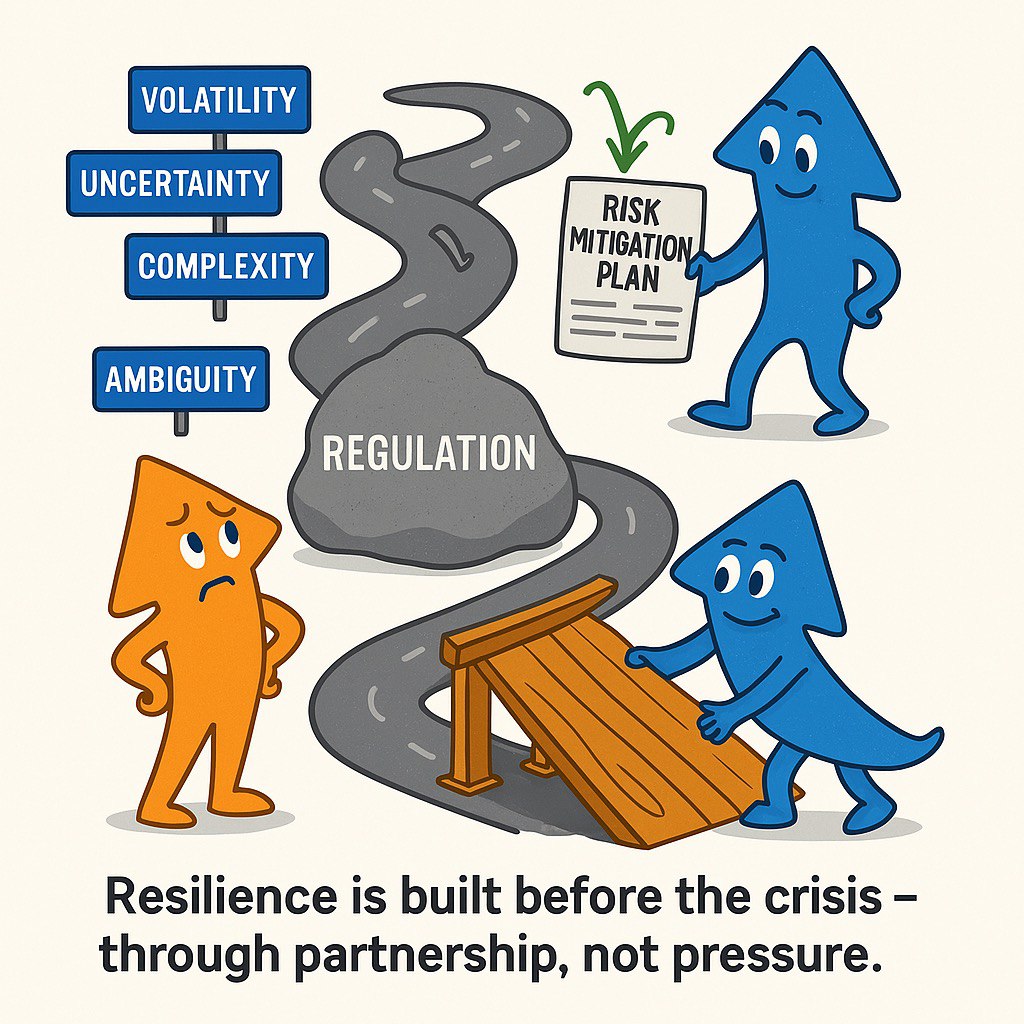
In the world of supply chains, disruptions rarely come with a warning.
I remember a moment from my time working in a steel manufacturing plant.
A sudden delay came from a supplier we had trusted for years — reliable, consistent, and stable.
And just like that, we had two choices:
- Wait — and hope the supplier recovers quickly
- Activate our backup plan — absorb higher costs, but keep production going
It wasn’t just a supply issue.
It was a real-time test of readiness, decision-making under pressure, and understanding the risks beyond contracts.
The situation reminded me of a tired arrow on a winding road — pushing forward through uncertainty, curves, and fog.
This kind of environment has a name: VUCA.
- Volatile
- Uncertain
- Complex
- Ambiguous
We often hear these terms in theory.
But then something like Trump’s recent tariff decisions lands — targeting global trade and reshaping procurement dynamics.
And suddenly, VUCA becomes very real.
📊 Let’s look at the data.
A joint report by Wall Street Journal and Oliver Wyman found that companies that invested in operational resilience saw 23% revenue growth over five years — compared to just 15% for others.
And according to FTI Consulting, 40% of companies have no contingency plan for major supply chain disruptions.
That’s not just a statistic. It’s a risk — and a warning.
🔍 The Real Lesson:
A great supplier is valuable.
But business continuity is non-negotiable.
And a smart supplier will understand if your decision protects your ecosystem.
Today, supply chain leaders fall into two camps:
-
Those who follow global decisions like tariffs as if they don’t affect them
(feeling “too far” from the risk) - And those who are already reviewing their options, identifying vulnerabilities, and preparing alternatives
It’s the same divide we saw during the early days of COVID-19.
Some moved early.
Others realized the threat too late.
💡 So here’s the real question:
Is your strategy built for the world as it is — or for the world you hope it to be?
This isn’t about fear. It’s about clarity.
And the decisions you make now could define how your organization survives or thrives through the next crisis.
Let’s learn from each other.
What’s one decision you’ve made recently to strengthen your supply chain?
Drop your thoughts — because the smart conversations of today fuel the smart actions of tomorrow.